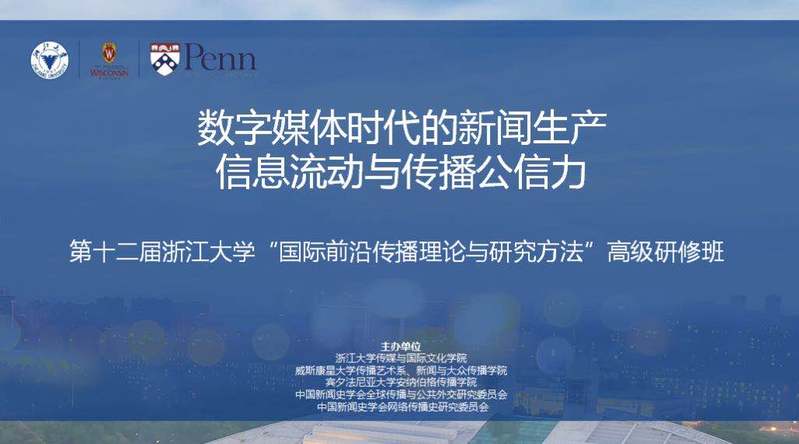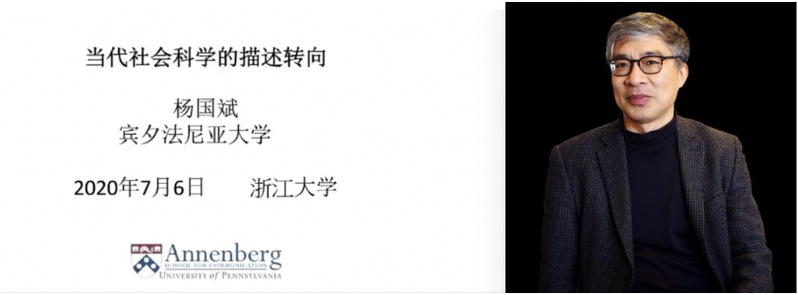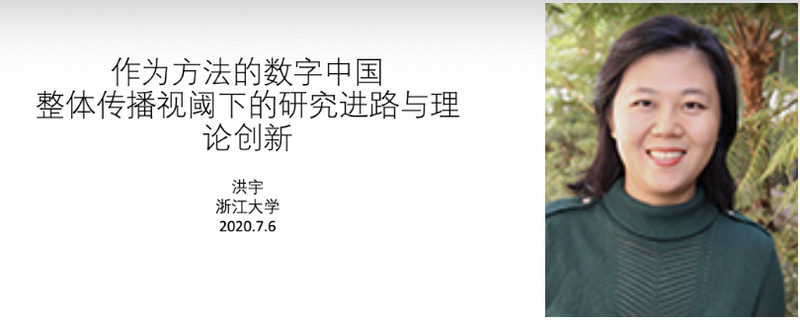The 12th ZJU Summer Research Program on Communication Theory and Method was held on July 6. Over 120 young scholars participated in the program through an online platform.

The program revolved around the theme of News Production, Information Flow, and Communication Credibility in the Digital Age and was jointly organized by Zhejiang University, the University of Wisconsin, the University of Pennsylvania and the CAHJC (Chinese Association for History of Journalism and Mass Communication).
To start off the five-day event, Prof. Lu Wei, the dean of the College of Media and International Culture (CMIC) of Zhejiang University expressed his appreciation to all the contributors and greeted the participants in his welcome speech. He encouraged the participants to view the program as an extra-curricular activity where they could broaden their horizons and improve within the discipline.
The Descriptive Turn in Contemporary Social Sciences
Prof. Guobin Yang from UPenn presented on The Descriptive Turn in Contemporary Social Sciencesin which he pointed out that the descriptive turn is a new concept that is worth paying attention to. Detailed description is the greatest record and testimony of social life and phenomena, not to mention that a good description is also an explanation by itself.

The adoption of this concept could be found in Deep Studies for Chinese Internet by Prof. Yang. In his opinion, researchers should attach importance to people’s experiences and practices as people’s stories are essential to such studies. Additionally, historical context should also be taken into account as any type of progress, such as internet development, is a result of its past. Prof. Yang also responded to questions later in his session.
Digital China
In the afternoon session, Prof. Yu Hong from the CMIC gave a talk on digital China in which she proposed three dimensions of the concept. Prof. Hong suggested to reflect on conventional research paradigms with China as the foundation and to build a platform that centralizes the country. Additionally, in the process of establishing more variations of technical politics and communication possibilities, it is crucial to take into account the historical, social and political factors.

In the evening, participants attended an icebreaker session led by four instructors. The purpose of the session was to facilitate interactions during lectures to ensure better discussion on journalism and communication concerns.

